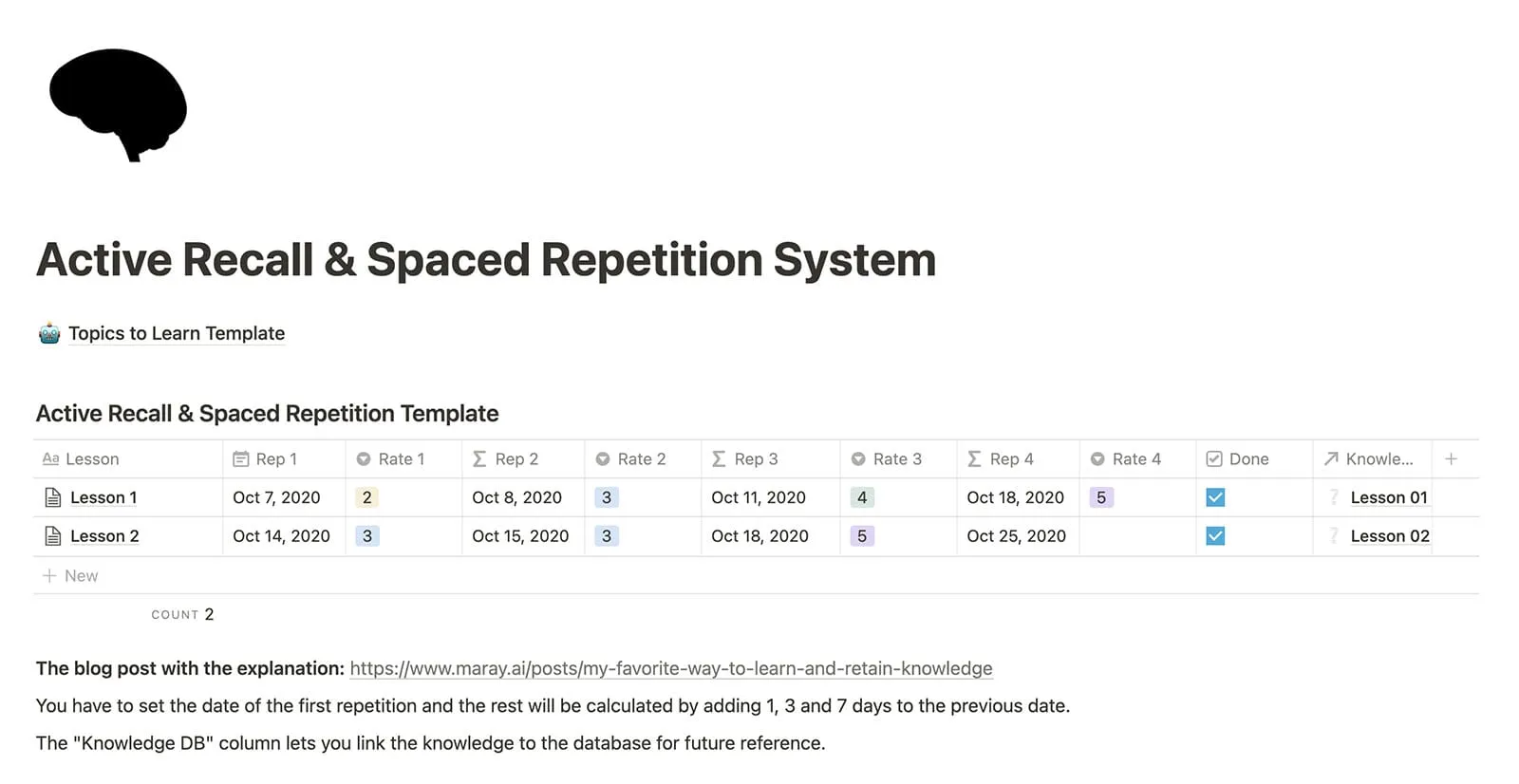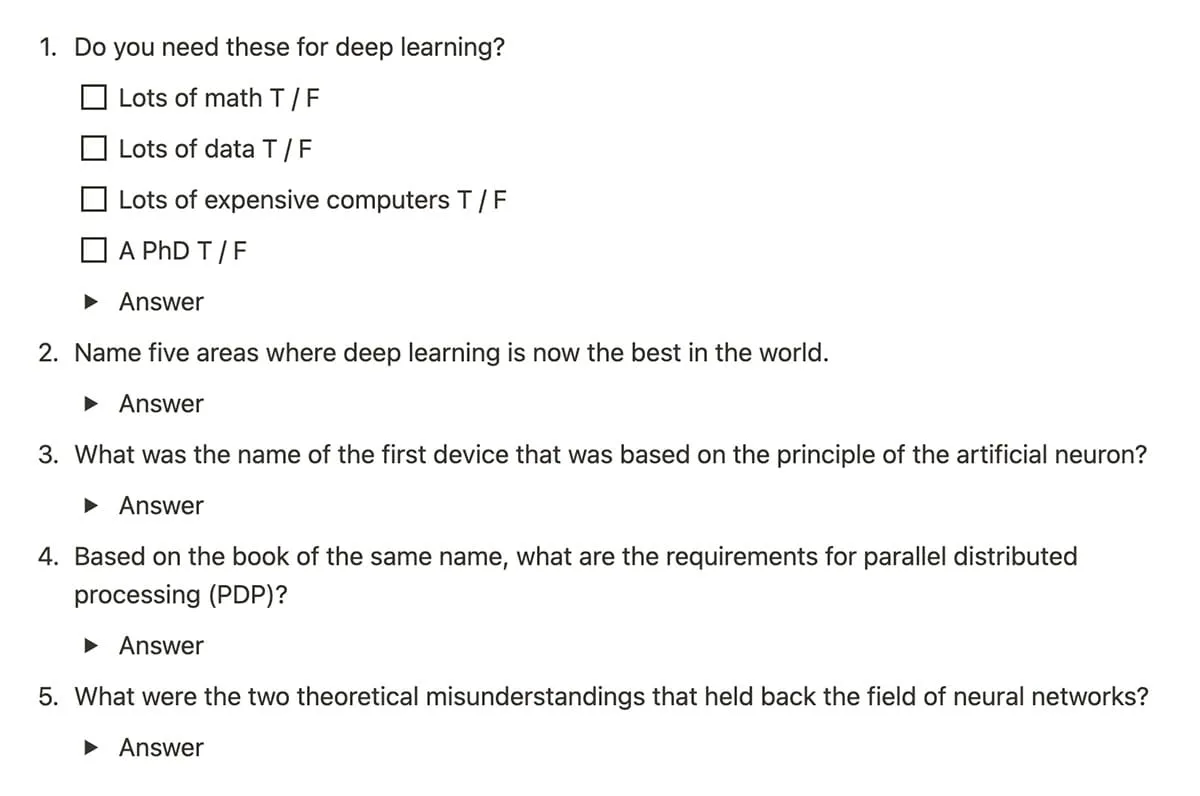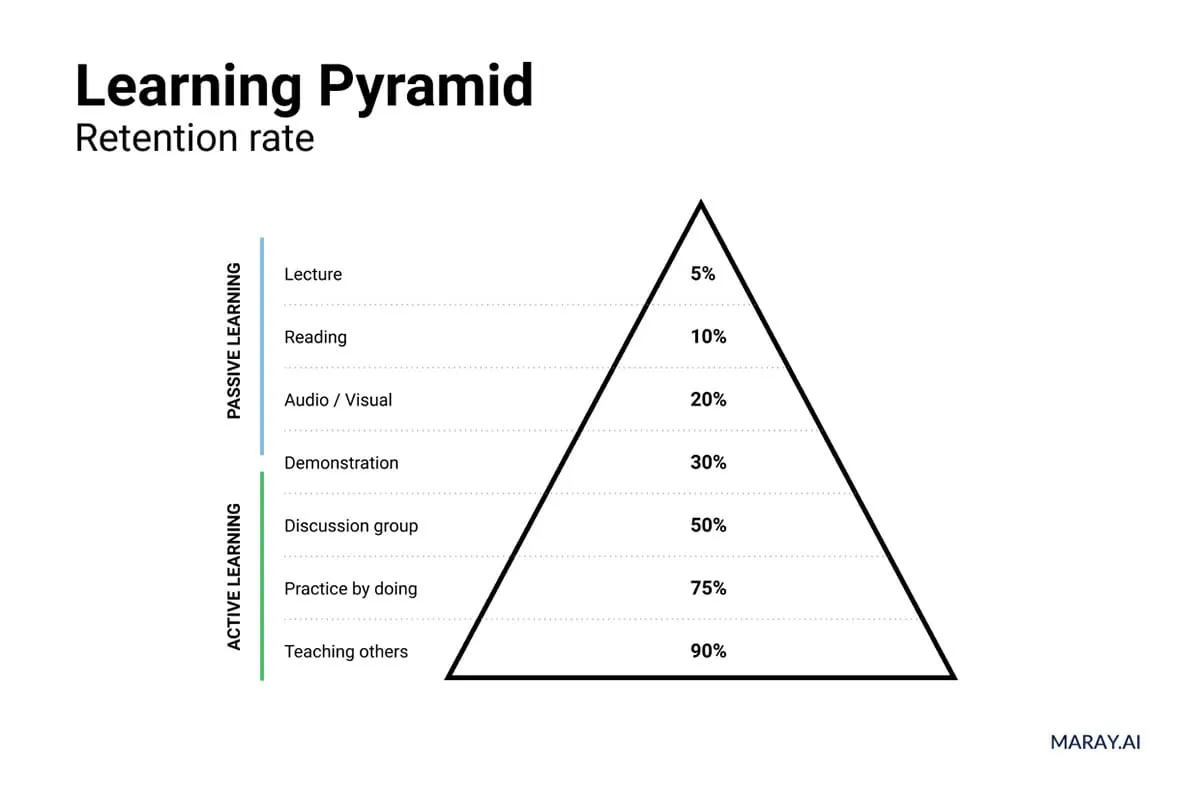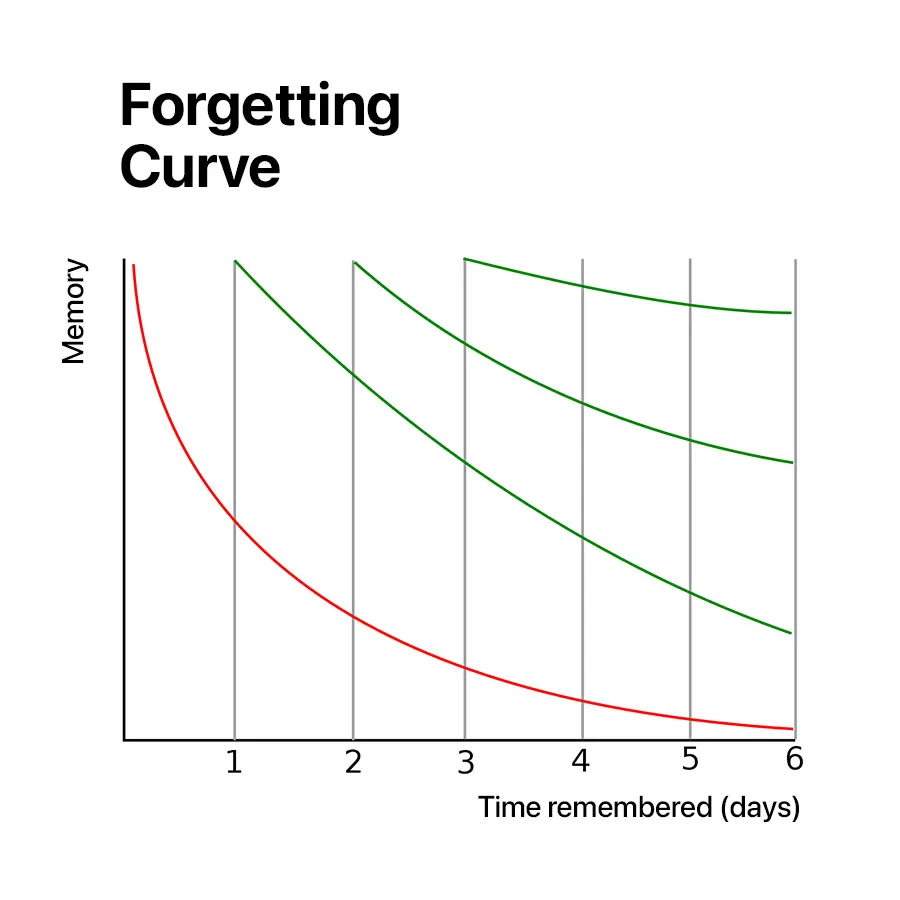Active recall and spaced repetition are efficient learning methods that can help you remember information long-term.
In this article, I will explain how **active recall** and **spaced repetitions** work from a neuroscience perspective and how you can use them to retain knowledge from books, lectures, and everyday life.
Retaining information is costly for the brain. The more you use and extract the information, the stronger the neural synapses get. Active learning promotes stronger neural pathways by recalling and reinforcing the information in the brain.
Although there are many spaced repetition apps, I use Notion to effectively practice the techniques to retain information for as long as I can.
Duplicate the Notion [active recall and spaced repetition template](https://affiliate.notion.so/active-recall) and follow along.
###### I am happy to share that I recently launched Student OS, an operating system for optimizing the studying process, maximizing your learnining outcomes and building a knowledge base. A simpler version of spaced repetition template is integrated in the OS to help retain the information from classes.

## What is active recall?
Active recall is a study method that involves activating, and therefore, strengthening, neural synapses to easier recall the information later. By practicing active recall you reinforce the neural connections that represent the knowledge in the brain. Additionally, spaced repetition of active recalling gives you access to the information for a longer time.
Space in the brain is limited. The unused information is replaced with something more recent and, therefore, valuable. The fewer times you recall information, the worse you start to remember it. However, consistent recall and spaced repetition can increase the retention rate.
## Active recall and spaced repetition template in Notion
What is cool about Notion is that it makes the whole process much easier with the system of templates. Instead of manually setting up the time schedule, you can automate it with a press of a button.
For instance, when you create a new entry in the table, you can populate predefined data such as dates and rates.
Let's look at the overall scheme of things and how active recall and spaced repetition work together.
The template consists of the topic I want to learn and periods I have to practice recalling it.
After each repetition, I rate how well I memorized it so that I have a future reference on what to focus on.

Let's have a look at the example.
Recently I started a Deep Learning course that has a set of questions for each lesson. I made a template with the correct answers hidden in a toggle and set it in the repetition table to review it the next day, 3 days, a week, and a month.
That's how my learning process looks like.

When the date is due, I open the questionnaire and try to recall the correct answer. If I struggle, I relearn the information and come back to it later.
Then I evaluate how well I know the information and adjust the schedule accordingly.
You can duplicate the template [here](https://affiliate.notion.so/active-recall).
## How active recall helps to retain knowledge
[Active recall](https://en.wikipedia.org/wiki/Active_recall) is a principle of efficient learning. By practicing it, we stregthen nerve cell axons with myeline and move information from short-term to long-term memory.
Reading a book or listening to a lecture is passive learning with a low % of information retention and taking notes or teaching others is active learning with a higher retention rate. Active involvement of the brain results in reinforcement of the synapses which leads to more efficient memorization.
If you want to remember something, active recall is one of the most efficient techniques. I wish I knew about it when I studied at the university and prepared for exams.
You do not need to reread the information or repeat it, you should try to recall it several times to establish a firm neural connection that represents the knowledge.
To retain that knowledge for longer periods, you can use **spaced repetitions**.

## Spaced repetition schedule
Every individual is different and the schedule should be too. The only rule is that the intervals should be increasing. They can be 1 day, 2 days, 4 days, and 8 days or with much larger intervals.
Spaced repetition schedule can be the following:
- First repetition: 1 day
- Second repetition 3 days
- Third Repetition: 7 days
- Fourth Repetition: 21 days
However, you should adjust it to your learning rate and capacity. Active recall and spaced repetition are skills that can be improved over time. The more you practice, the better memory you will build.
## Active recall studying technique
The core principle is to activate neural pathways that represent that particular knowledge.
I prefer Notion as my spaced repetition framework because you can practice more systematically with it. You can also build a pretty cool learning wiki while learning and studying.
For instance, when I study German, I take notes, grow the dictionary, and use active recall with spaced repetition to better remember the new words. Of course, I have to use these words, spaced repetition alone is not as effective as in the combination with practicing.
### Step 1. Start with the question of the problem
Usually, I have a set of questions and the correct answer hidden in a toggle. Another method is flashcards. There're are many apps and platforms where you can create digital cards and learn trying to recall the correct answer hidden on the opposite side.
### Step 2. Make the best effort possible to recall the correct answer.
Use memorization techniques such as Memory Palace, associations, and loud recitation.
### Step 3. Lookup the correct answer.
If you were right, congratulations! If not, find the breach and give it another go.
### Step 4. Practice with spaced repetition system.
Now that you know how spaced repetition works you can create your system to regularly practice and recall the knowledge.
## Why is our memory so bad at recalling information?
In [Moonwalking with Einstein](https://www.amazon.com/Moonwalking-Einstein-Science-Remembering-Everything/dp/0143120530) Ed Cooke makes an experiment with students. He shows them 30 images each for a fraction of a second and asks them to remember as much as possible. After a half an hour break he shows them pairs of pictures and asks them if they recognize any image they had already seen in the previous set.
Everyone recognized every picture from the original set, even the speed at which the slides turned was very fast. In fact, there was the same image recognition experiment carried out in the 1970s, only instead of 30 images, the researchers asked to remember 10,000, and the participants could recognize 80% of the images later.
Your visual memory is that good, although it is sometimes hard to retrieve the information you need. Your brain recalls information by “re-creating” it in working memory and tries to match it with the information in the long-term memory.
That is why more context, more details help to find that link and recall the knowledge. Memory athletes use visual familiar contexts to link the objects they try to remember with them. [Memory palace](https://fs.blog/2021/06/memory-palace/) is a technique that activates the visual memory to remember whatever you need fast and efficiently.
In an experiment, I tried to remember 8 random words. After I created loci for each word, I could easily recall the words in the right order. It took me around 5 minutes to fantasize about different scenarios where the words would have been embedded in them.
Although memory is indeed bad at recalling information, the visual part of the brain can hugely compensate. Utilize its potential to make learning faster.
## How Spaced Repetition reinforces neural synapses
[Hermann Ebbinghaus](https://en.wikipedia.org/wiki/Hermann_Ebbinghaus), a German psychologist is known for the discovery of the forgetting curve and spaced repetition technique. In 1885 he conducted experiments on himself to describe how we forget and learn.
The forgetting curve is the exponential loss of the information you learned. In the 24 hours you forget 50% of it, the next day you lose another 20%, and so on.
Spaced repetition helps to decline the exponential rate and retain the information for a longer period.
The strategy is to repeat what you learned, evaluate and repeat in the future.

You can use a simple notebook and a calendar to track the repetitions you have made.
However, I will show you the system in Notion that I use to track my progress.
## Final thoughts
[Hermann Ebbinghaus](https://en.wikipedia.org/wiki/Hermann_Ebbinghaus), a German psychologist is known for the discovery of the forgetting curve and spaced repetition technique. In 1885 he conducted experiments on himself to describe how we forget and learn.
The forgetting curve is the exponential loss of the information you learned. In the 24 hours you forget 50% of it, the next day you lose another 20%, and so on.
Spaced repetition helps to decline the exponential rate and retain the information for a longer period.
The strategy is to repeat what you learned, evaluate and repeat in the future.






